|
Editor's Note: In honor of the second anniversary of WYD Krakow (2016) and in anticipation of WYD Panama (2019), we are reposting this wonderful reflection from WYD 2016 on the role of young people in the Church.
Who was it that claimed the Church is irrelevant to young people? Who was it that claimed young people did not seek or yearn for Christ? My experience of World Youth Day (WYD) has shown me otherwise. WYD is the largest gathering of Catholic young adults in a series of events sponsored by the Church. First initiated by St. John Paul II in 1985, WYD is celebrated at the diocesan level annually and at the international level every two to three years at different locations around the world. People do not attend as tourists, but rather as pilgrims, since the nature of the composite events are religious in character. Typically, pilgrims will arrange lodging in the host city before participating in the opening ceremonies, catechesis, and cultural exhibitions. Taking advantage of all the host city has to offer, pilgrims will usually also spend time exploring the region (especially churches), shopping for religious souvenirs, and tasting the local cuisine… and very rarely alone! As the locals are quick to notice, the host city will be absolutely inundated with pilgrim groups, each identified by various flags, shirts, and chants. In spite of the inconveniences experienced (such as crowds, traffic, and long lines), for the most part, the locals are excited to greet so many peoples; local businesses are especially happy to cater to the pilgrims’ needs. The focus of WYD events centers around the arrival of the pope: everyone wants to hear what the Holy Father has to say to the young pilgrims at various sites and events. Traditionally, the Holy Father will address crowds from his residence, during Masses, Stations of the Cross, and the overnight vigil during which millions camp out together in prayer. The conclusion of the Vigil Mass the following day signals the end of the official WYD program, though at that time the next host city is formally announced. I’ve been blessed to have been able to attend two World Youth Days, in Rio de Janeiro, Brazil in 2013 and in Kraków, Poland this year. So much more than a sightseeing trip, WYD for me has been all about seeing how God’s love for us manifests itself in each culture. Encountering millions of young believers (in addition to curious observers) who are inherently joyful in their witnesses to the Lord, I am especially delighted to see them interact with each other through songs, chants, prayers, and games during scheduled events or out in the streets. For me, some of the most powerful witnesses given happened outside of the official program (though seeing millions kneel before the Blessed Sacrament with lit candles during the vigil was indescribably moving). I remember seeing a group of Italian pilgrims run over to help a local disabled man carry groceries up a number of street stairs; another group immediately rushed to comfort a female pilgrim who had broken down during our 12 kilometer (about 7.5 miles) hike from the site of the overnight vigil. Simple acts of love like that really touched me as being authentically Christian: to love in even the smallest matters and, by doing so, answering the call given at the end of Mass, “Go in peace to love and serve the Lord.” Pope Francis gave many beautiful and encouraging addresses to those assembled in Poland, but I was most impacted by an action of his. At the beginning of Mass at the great Shrine of Czestochowa, Pope Francis missed a stair step and fell, thankfully uninjured. He later explained that, "I was watching (an image of) the Madonna, and I forgot the step." He literally fell for Our Lady. When I heard the news, I remembered a similar experience of my tripping on the stairs upon seeing a lovely peer of mine go by. To have that ineffably tender and peaceful focus on the Blessed Mother, to be in awe of the Virgin, reflects the perfect love God has for her and for each of us. WYD may have ended, but the mission entrusted to the young pilgrims by Pope Francis still burns in our hearts: Launch us on the adventure of mercy! Launch us on the adventure of building bridges and tearing down walls, barriers and barbed wire. Launch us on the adventure of helping the poor, those who feel lonely and abandoned, or no longer find meaning in their lives. Send us, like Mary of Bethany, to listen attentively to those we do not understand, those of other cultures and peoples, even those we are afraid of because we consider them a threat. Make us attentive to our elders, as Mary of Nazareth was to Elizabeth, in order to learn from their wisdom. May each of us always endeavor to accomplish it! To learn more about the October 2018 Synod on Young People, visit our Synod Portal. To learn more about WYD 2019 visit our WYD Panama Portal.
0 Comments
When you hear the name St. Augustine, what do you think of? Probably something about the Confessions, arguably his most famous work. Or perhaps you remember that he is one of the first doctors of the Church. But do you know about his spiritual journey from youthful hedonism to prominent theologian?
St. Augustine was born in the mid 300s in North Africa to a Christian mother and a pagan father. Initially educated in rhetoric, as a teenager, Augustine embraced a life of comfortable vices, which he outlines in his autobiographical and philosophical work the Confessions. Eventually, his intellectual pursuits lead him to Europe, into and out of Manicheism (a dualist religion based on pure reason), and back toward the religion of his childhood. Through the evangelizing work of St. Ambrose, Augustine was finally baptized into the Christian faith in his early 30s. He went on to become one of the early Church’s most important philosophers. For cradle Catholics like me, our faith journeys are nowhere near as dramatic as St. Augustine’s conversion from corrupt youth to doctor of the Church. Nevertheless, there are always opportunities for daily conversion! The teenage Augustine would pray, “Give me chastity and continency, only not yet.” How often do we catch ourselves praying in a similar vein? “Give me temperance—but not until I’ve eaten three packages of Oreos”; “Give me a stronger desire for prayer—but maybe not until next week, after I’m done binge-watching this TV show.” Like Augustine, we often find ourselves wrestling with our human weaknesses and our desire to do things on our own timeline rather than God’s. But even as we struggle to overcome our personal vices, God draws us closer to Himself, taking our fractured pasts to create a beautiful whole. St. Augustine’s theological and philosophical treatises would perhaps have not been so fervent or persuasive had he not previously so fully embraced bad philosophy before his conversion. His secular education and his training in rhetoric and Platonic philosophy prepared him for his work defending true Christian theology and refining its philosophy—so much so that he is recognized as one of the original doctors of the Church. Long before Augustine had come to fully accept the Christian faith, God was already preparing him for his future role as bishop and philosopher. Likewise, our past does not restrict our future. Choices that ended up leading us seemingly nowhere, periods of doubt or conflict—God can take these moments of human weakness and use them to bring us closer to Him. Like St. Augustine, even a previous decade of promiscuity could remind us of how empty is a life not lived for Christ. St. Augustine is living proof that no one—no matter how seemingly corrupt, how spiritually lost, or how morally confused—is beyond the power of God’s grace. On St. Augustine’s feast day, let us consider where we are on our faith journeys. Where is there room for daily conversion? How can we learn from our past failures to more fully embrace a future lived with Christ? Question for Reflection: What failure can I use from my past to build up my relationship with Christ? Editor’s note: The following transcription is from an interview we conducted with Julia Dezelski, the Assistant Director of Marriage, Family Life, and Laity at the USCCB. Julia is attending the World Meeting of Families as a panelist. You can listen to the podcast here. This transcription has been lightly edited for clarity.
Lindsay Myers: Welcome to the Catholic Apostolate Center podcast. This is Lindsay Myers. I'm the Editing Associate at the Catholic Apostolate Center and today we're talking with Julia Dezelski, the Assistant Director of Marriage, Family Life and Laity at the USCCB. We're going to hear a little bit about her role in attending and participating in this year's World Meeting of Families. Welcome Julia. Julia Dezelski: Thank you. Glad to be here. Lindsay Myers: Julia, tell us a little bit about what you do at the USCCB, how you came to your position and then we'll talk about the World Meeting of Families. Julia Dezelski: Sure. So I'm Assistant Director for Marriage, Family Life and Laity, the secretariat of Laity, Marriage, Family Life and Youth at the USCCB. And this secretariat basically oversees the largest portion of the church because it's the laity who we basically deal with on a day to day basis. And it's a big mandate. What we do is assist the committee of USCCB bishops who in turn represent the priorities of the conference in respect to promoting the evangelization and faith formation of the laity. So, basically, whatever issues the laity are facing, we face together as a church and we try to address those challenges faced by the laity, by couples, by families, and all of those challenges we face together. So I came to USCCB last October and as a theologian, my particular focus of study and research has been on vocation and states of life. And my own life journey actually brought me to discern different vocations, which led me eventually to the vocation of a married woman and mother. So I'm the proud mother of a six month old currently. I see my role at USCCB as part of my vocation at this time, especially given the essential importance of the family and the renewed recognition of its centrality at a time in which it's being seriously undermined and attacked. Lindsay Myers: Now how were you selected to attend the World Meeting of Families. Are you representing the USCCB there or…? Julia Dezelski: Well, I was asked primarily given my role as Assistant Director in the secretariat and I'm not officially representing USCCB. Although I will be speaking in so far as I am the Assistant Director at USCCB and I will be attending along with a few other colleagues from the secretariat, as well as a few bishops who will be joining us from the U.S. So I was asked basically just to speak on a panel, which is included in a three day pastoral congress taking place at the beginning of the World Meeting. And each of the three days covers a topic from Amoris Laetitia. And so on Thursday when I will be speaking, the topic is the family and love and it's taken from chapters four to six. So my particular panel on which I'll be speaking is Love Made Fruitful, Amoris Laetitia on cherishing the gift of new life. And I'll be speaking together with a barrister, otherwise known as an attorney from Northern Ireland and an academic from the Bioethics Center in Oxford. And so each of us will be speaking for about 10 minutes on this panel, which will be moderated by Bishop Ayman Martin. And so it should be a really interesting, celebration and experience. It will be the first time actually that I will be attending a World Meeting of Families myself, even though the last one was just in our backyard in Philadelphia. Lindsay Myers: Right. Now what is the perspective that you're going to provide on that panel? Is it your perspective as a wife and mother? So someone ... a member of the laity who's living this family life from the feminine perspective or … ? Julia Dezelski: Yes, precisely. I believe that's another reason why I was asked because I will be approaching this subject from the perspective of a young wife, mother, as well as professionally from the standpoint of theology and as Assistant Director for the U.S. Conference of Catholic Bishops. But I do speak ... My notes are primarily based on my experience as a young mother and from my role as ... in the home as a mother and a wife. So I speak primarily on Love Made Fruitful, I look at the chapter, specifically on the gift of life and then drawing out a couple of key elements that consist of life as being brought into the sphere of a man and woman who are married, who have given - who make that gift of oneself to the other. And then from which that fruit, a new life comes forth. So I'll be speaking on those issues and it will touch a little bit upon the unfortunate referendum which took place in May. Lindsay Myers: Right. Of course. Julia Dezelski: Which has really overturned Irish legislation. I believe from here on out abortion will now be legalized. So it's an unfortunate turn of events right now in Ireland, but maybe it's also providential that the World Meeting of Families is taking place right there on their soil. Because the family is being undermined once more and this might be a beacon of hope for the Irish people. Lindsay Myers: Are you bringing your family with you? Julia Dezelski: I am. Lindsay Myers: Oh, that's exciting. Julia Dezelski: Yes. I had to bring my little one, so my husband's coming along too. Lindsay Myers: Sure. Very nice. You won't have the baby at the panel, I assume? Julia Dezelski: No, she'll probably be in the audience. Lindsay Myers: A little visual witness. Julia Dezelski: Yes. Lindsay Myers: Great. Okay. So let's talk about the World Meeting of Families in general. Do you know why the first one was called or a little bit about the history of the World Meeting Families and could you share that with us? Julia Dezelski: Sure. So it was originally started in 1994 when Pope Saint John Paul II asked the Pontifical Council for the family, which is now the Dicastery for Laity, Family and Life, to establish an international event of prayer, catechesis and celebration. And this draws participants, families from around the globe, and it's also meant to help strengthen the bonds between families, as well as bear witness to the crucial importance of marriage and the family to all of society. So the World Meeting of Families has since been held every three years and it's been held in Europe, South America and most recently in Philadelphia, and now it will be in Ireland. And like I just said, this is I believe an important event for the Irish people given this recent referendum and - Lindsay Myers: Of course. Julia Dezelski: And the Irish ... Thinking back to somewhat my own Irish roots, I have a maternal grandmother who's Irish. The family is a major element in the Irish culture and so I believe that they are going to welcome this event with open arms and it will be a beacon of hope for them. And this is also the first World Meeting of Families to be held since the release of Amoris Laetitia since that was released in 2016. Lindsay Myers: Yes. Julia Dezelski: So the World Meeting this year is really going to be based on that apostolic exhortation. Its theme and inspiration is based on Amoris Laetitia. Lindsay Myers: So would you say that part of the World Meeting of Families, part of the goal is to discuss perhaps how families can begin to live the principles of Amoris Laetitia in their daily lives? Julia Dezelski: I'm sure that's an element of it and that's exactly what the congress, those three days of Catechesis are going to be exploring, those elements of Amoris Laetitia that can be applied to family life. And there is a lot there in the apostolic exhortation to ... which exhorts and also encourages families to live out what they're called to be, a domestic church. Lindsay Myers: And why do you think an event like this is so important for the church right now? You spoke a little bit about the referendum in Ireland, but just more generally for the church in the entire world? Julia Dezelski: I think this event is important particularly because not only in the U.S., but also across the world, there's this real emphasis on the centrality of families. And since the family in one way or another is being undermined in so many different countries across the world, it's an important reminder to us of what the family is, what its role is in the church and its foundational importance in society, because families are really at the foundation of society. So if you have strong families, you ultimately have a strong society and a stronger church. So if you look at recent events in the U.S., especially regarding allegations against clergy and hierarchy, I think that this World Meeting of Families can really serve as a reminder of how much the laity and specifically the family looks up to its leaders in the church. But also it's a reminder that the family is really the cradle of all these vocations. And so I believe that when you have, and this is just my own opinion, but there may be problems among our priests and bishops because there might have been problems in the families of origin. And not to say that that's the fact, but it could be one of the symptoms that there were prior problems in the families from which these clergy come. Not always, but if our families from which our clergy are drawn are virtuous and witness and teach a sexual morality that is true and beautiful as desired by God, most likely their vocations will be holy and virtuous too. So I think it's just a reminder that the family is really the cradle of all vocations and it's also the place where we form young people, young minds and young hearts. And that domestic church is a microcosm of the entire church. So if there's virtue being instilled there in the heart of the home, then there will be virtue in the entire church, the entire mystical body of Christ. Lindsay Myers: Right. So I'm an event like this is almost ... it's almost like a retreat or like a week of professional development or something. Something to gather families together and strengthen them to go back out in the world and to go out on mission and strengthen themselves the better to evangelize eventually. Julia Dezelski: Yeah. I think that's important to remember because there can be a lot of conventions and congresses and conferences and sometimes they seem never ending. And I do wonder sometimes what are, where are we seeing the fruits of these efforts? Because there's a lot of money, time, energy that is spent in preparing for these big events and they're wonderful if they are lived well. Meaning if there's really a true spirit attached to them and if there's a real fruit that comes of it. And I do hope that the fruit of this World Meeting of Families is an increase in a sense of what family is meant to be and called to be by the church. So that it's not just a ... well it's a celebration. Lindsay Myers: Right. Julia Dezelski: But it's also a call to be who you are. So I hope that families are encouraged to be who they are, domestic churches, and see that witness from other families. So ... And I believe that's what Pope Saint John Paul II was trying to do.He had so much at heart about the family, that I think he wanted this to be really a place where families across the world could see: look how we mirror the church together - from all over the world. So we're all church and so gain that kind of strength and encouragement from one another. Lindsay Myers: Now we're talking a lot about families and the beauty of families and I'm in a similar life stage as yourself, married with two young children. But of course when we talk about these things, I kind of have in the back of my head Catholics who are active participants in the church, but perhaps have not been called to family life. Maybe they're called to the single life or they just haven't begun a family yet. So in what ways are those Catholics also encouraged to participate in an event like this, or just how can those Catholics support families in a way that emphasizes the important role that they play as well in the church? Julia Dezelski: Right. Yeah. It's really important to remember that couples who bear the cross of infertility do have a role in family life. I can relate to that in a way because my own sister has been married for five years and she and my brother-in-law have not been able to have children for one reason or another. It's just hasn't happened yet. So they fill another important role in our lives specifically when my daughter was born, I asked her and her husband to be godparents to Miriam. And they were happy to do so because this makes them spiritual parents of a child and the importance of godparents can't be forgotten and I think it's something that tends to be forgotten because ... I don't know really the reason why, but it shouldn't be because it is an important role to play and it's essential really in the forming of the Christian character and formation of a child. Lindsay Myers: Right. You're outsourcing some of that development. Julia Dezelski: Exactly. Lindsay Myers: To someone that you can theoretically trust- Julia Dezelski: That's right. Lindsay Myers: And know that they hopefully aren't going to lead your child into error or sin. Julia Dezelski: Right. Right. Right. It's really a grave responsibility to be a godparent. I am a godparent to a number of people, to three children, and sometimes I do have to remind myself, "That's my responsibility. What am I doing to reach out to them?”, because there's ... I have one godchild in Canada for example. It's really hard to see him on a regular basis. But opening up channels of communication and just staying in touch and making sure that they are being brought up in a Christian household and that they're learning the prayers. Based on their age, what kind of issues they are facing, how can maybe I help reach out and talk about those issues with them if there's something that maybe the parents themselves don't even know how to educate on. So it is a major responsibility and I think that's just one of the ways that couples dealing with infertility can recognize their role with families. And of course there are other things ... other forms of fruitfulness, adoption, foster care, volunteer work, acts of charity, even just to maybe a family that's experiencing financial crisis - or even just by babysitting. Just being that example of another father, mother in a spiritual sense that can help out. Lindsay Myers: Right. And I wonder what you think about kind of the idea that we have our immediate families, our biological families, but there's also a call within our church to build community. You can think of a parish community where, in some sense. that becomes your family. And so there's a place for all of the different family units and the single people and couples struggling with infertility or intergenerational members of that parish community to come together and serve one another and celebrate with one another and grieve, whatever. Just to behave as a family would just on a larger kind of community scale. Julia Dezelski: Yes, that's right. And it's important to remember that each of those people in the church has a place and a role. And actually one thing that we're doing at USCCB at the moment is preparing a pastoral plan to implement Amoris Laetitia that could be used primarily for ministers and family life and marriage on the diocesan level or the parish level. And one of the aspects of that is how to integrate also people in the single life into the Church, into our domestic churches, but also the greater parish community. Recognizing that they have a role there too. And that proximity that we have with so many different states of life. Lindsay Myers: Great. Now for those of us who can't make it to Ireland, how can we participate from afar in this event? Is there anything happening or would you just recommend keeping tabs on the website or … ? Julia Dezelski: Right. Actually, I was just looking at their website and that is really full of ideas actually. They've got this really cool downloadable pray-a-thon to help families prepare for the event. They also have a Let's Talk Family podcast. They also have a prayer space at home initiative. It's almost like a competition or contest that invites families to share photos of the spaces where they pray in their homes and you're invited to upload them to their website. There's also an official prayer of course, that can be recited by families and one idea might even be ... And this is just an idea that I had, some families can even gather together maybe in their own living room and hold their own mini event and watch maybe the papal mass. Maybe not live if there's a six hour difference, but it kind of depends I guess on what time it would be. But I'm sure that at least the papal mass or the festival of families would be live ... recorded on EWTN or maybe online. And so just preparing your own little mini event maybe among families might be fun because I know they do that for the World Youth Day. They have like a World Youth Day on your home base. Lindsay Myers: Great. Well thank you. Those are excellent ideas. Well, is there anything else you'd like to share about the event, your participation, or the importance of family life in the church? Something to leave our listeners with as a wrap up? Julia Dezelski: Sure. Well I'll just comment on what Amoris Laetitia says to families and I think this is in summary, what it’s saying. It's saying: become who you are. Remember that you are a domestic church and it might sound daunting maybe, but it's really as simple as just living out the call to holiness one day at a time. So the stronger our families are, the stronger our church will be in the United States and across the world. Lindsay Myers: Well, thank you, Julia. Let's actually end with the official family prayer for the World Meeting of Families so we can give our listeners a taste of what it is and then they can hopefully find it for themselves and their families on the website. Julia Dezelski: Sure. Lindsay Myers: In the name of the Father and of the Son and of the Holy Spirit. Amen. Julia Dezelski: Amen. Lindsay Myers: God, our father, Lindsay & Julia: We are brothers and sisters in Jesus, your son, one family in the spirit of your love. Bless us with the joy of love. Make us patient and kind, gentle, and generous, welcoming to those in need. Help us to live your forgiveness and peace. Protect all families with your loving care, especially those for whom we now pray. Increase our faith, strengthen our hope. Keep us safe and your love. Make us always grateful for the gift of life that we share this we ask you through Christ our Lord. Amen. Lindsay Myers: Thanks Julia. Julia Dezelski: Thank you, Lindsay. Julia Dezelski is the Assistant Director of Marriage, Family Life, and Laity at the USCCB. “I was born poor, I lived poor, I will die poor” are the words of a humble man. And yet, Pope St. Pius X is venerated not only for his piety, but also for the many accomplishments of his papacy. During his 1903-1914 pontificate, Pius X wrote an incredible defense of the Church from modern era heresies like relativism and religious indifferentism; he eliminated foreign vetoes from papal elections; he created the Confraternity of Christian Doctrine (i.e., the group that organizes “Sunday school,” or CCD classes, for the entire Church); he established the production of the 1917 Code of Canon Law; he developed a popular and simple catechism for the laity; he provided permission and financial support to establish the National Shrine of the Immaculate Conception in Washington, D.C.; and, perhaps most notably, he lowered the age of First Holy Communion from 12 to 7 years of age, citing the sacrament as “the shortest and surest way to Heaven.”
By lowering the reception age of the sacrament, Pope Pius X hoped to instill in the minds of the young communicants a deeper appreciation for the sacred intimacy of Holy Communion. In his 1994 “Letter to Children,” Pope Saint John Paul II built upon this theme, stating that frequent reception of communion is necessary “in order to remain in close friendship with Jesus.” One of the best benefits of Pius X’s invitation to the young is that it renewed a general liturgical emphasis on the Eucharist and encouraged more frequent reception of Christ’s Body and Blood among the faithful of all ages. With people receiving the Eucharist more frequently, there was also a surge of dependence on the Sacrament of Penance so as to receive worthily. Thus, the faithful of all ages were brought more frequently to the Sacraments thanks to Pius X’s pastoral insight. For me, the spiritual preparation I received for my first Eucharist was unlike any other instruction I was taught in school. Up until the day of my First Holy Communion, my participation at Mass was seemingly limited during the Liturgy of the Eucharist. I had questions about everything: Jesus had already died for me, my second-grade self would wonder, so what more is He offering? The answer, I would soon learn, could be summarized in the words of Bishop Barron, “The Cross has saved us, but our participation in that salvation can waver. So, what does the Lord give us? Bread for the journey.” Thinking about the Eucharist as spiritual food was very helpful and comforting, though I would continue to wrestle with the deception of my senses as described by St. Thomas Aquinas (who incidentally was a favorite of Pope St. Pius X) in his Eucharistic hymn, Adore te Devote: O Godhead hid, devoutly I adore Thee, Who truly art within the forms before me; To Thee my heart I bow with bended knee, As failing quite in contemplating Thee. Sight, touch, and taste in Thee are each deceived; The ear alone most safely is believed: I believe all the Son of God has spoken, Than Truth’s own word there is no truer token. The occasion of one’s First Holy Communion is indeed a cause for celebration and thanks to the “Pope of the Eucharist” children are invited to share in the Mystery of the Real Presence. But beyond the photos and party and presents received, the true gift is partaking completely in the sacrifice of the Mass as offered by the priest and then striving to remain worthy to do so again and again at and in between each subsequent Mass. May we – throughout our whole lives - call to mind the significance of this invitation and, in the spirit of St. Pius X’s awe-struck humility, continuously seek to deepen our relationship with the Lord whose Body whose Body we dare to consume. And, as we are strengthened by this awesome spiritual food, let us do what we can to bring others to it. Whether we serve as Eucharistic ministers to the homebound, or volunteer with a First Communion CCD class, or even invite our friends whom we know haven’t been to mass in a while to receive the sacraments with us, let us use Christ’s body in the Eucharist to fuel our spirits as we daily serve as missionary disciples. “The Gospel of the Family: Joy for the World” is the theme that Pope Francis chose for the upcoming World Meeting of Families in Dublin, Ireland. One aspect that will be explored is how “the Christian family, by its witness to the life and love of Jesus, is a principal agent of evangelization to the world.” Catholic teaching calls the family, the “domestic church” (Lumen Gentium, 11) and parents are told in the Rite of Baptism that they are “the first teachers of their child in the ways of the faith.”
Others in the Church, clergy, those in consecrated life, and lay people, are supposed to be co-responsible with parents not only for teaching children and young people, but most especially, nurturing them, protecting them, and witnessing to them holiness of life. When this fails to happen whether in the past or in the present, as is once again showing itself in various parts of the world, then repentance, reform and renewal are not only needed, they are necessary. Repentance, reform, renewal, and greater holiness are not possible without co-responsibility among all the faithful in deeper conversion of life in Christ as our patron, St. Vincent Pallotti, envisioned over 183 years ago in Rome. We cannot do this on our own as Pope Francis reminded all in his apostolic exhortation, Gaudete et Exsultate: “Ultimately, the lack of a heartfelt and prayerful acknowledgment of our limitations prevents grace from working more effectively within us, for no room is left for bringing about the potential good that is part of a sincere and genuine journey of growth” (GE, 50). Since we are limited, we are challenged to do, with God’s grace, as St. Vincent Pallotti exhorts us to do: "We must begin to reform our lives by putting all our confidence in God." May the Charity of Christ urge us on! In Christ, Apostle of the Eternal Father, Fr. Frank In the most beautiful chapter of the best work of one of the greatest Catholic theologians - in my opinion, anyway - Saint Augustine tells the story of his mother, Saint Monica.
Saint Monica was born to a good Christian family but she had little luck in marriage. She was married at a young age to a man named Patricius, and they had three children together. He was a pagan, he was angry, and he was unfaithful. But Monica was patient and merciful. Despite Patricius’s evil ways, she served him with devotion, mercy, and constant prayer. At the end of his life, only one year before he died, her daily prayer and kindness were rewarded and Patricius was baptized into the faith. But Patricius’s conversion did not end Monica’s sorrow. Augustine was seventeen when Patricius died, and his conduct was worse than his father's. He was brilliant, but lazy. He drank excessively, stole, and lived promiscuously. The year his father died, Augustine fathered a son of his own out of wedlock. Despite Monica’s urging, Augustine refused to settle down and get married. Worse still, Augustine rejected his mother’s faith and joined the Manichean cult. But Monica never ceased her kindness and prayers. She followed Augustine as his teaching lead him to Carthage, to Rome, and to Milan. In Milan, Monica met Saint Ambrose, then a bishop. In serving in his church, she came to know Ambrose well, and Ambrose came to understand her sorrow for her son. He comforted her, saying, “Surely the son of so many tears will not perish.” Her prayers were eventually answered. A year before she died, Augustine was baptized. He went on to become one of greatest saints in history. As she lay dying, Monica told her son that her life’s work was complete. “One thing there was, for which I desired to linger a little while in this life, that I might see you a Catholic Christian before I died. God has granted this to me in more than abundance, for I see you his servant, with even earthly happiness held in contempt. What am I doing here?” (pg 223). Saint Monica gives us a powerful example of the influence of intercessory prayer (CCC 2634-2636). Monica did not use words to persuade Augustine to convert. Instead she led by example, living with kindness and praying on his behalf. For thirty-two years she patiently prayed for his conversion, and God rewarded his faithful servant. We are called to do the same. The Letter of James says, “Pray for one another, that you may be healed. The fervent prayer of a righteous person is very powerful” (James 5:16) and Jesus tells us, “Amen, amen, I say to you, whatever you ask the Father in my name he will give you.” (John 16:23). We are all sinners and we all need God’s intercession. But we are not alone. God desires us to pray for our own forgiveness and for the forgiveness of others. That is why we pray “forgive us our trespasses” and not “forgive me my trespasses.” People are difficult. We treat each other with anger, unfaithfulness, and unrepentance. But rather than meet those that harm us with our own shortcomings, let us instead follow Saint Monica’s example and live a life full of kindness and prayer. Pray for God’s help, pray for the forgiveness and conversion of others, and Saint Monica, pray for us. St. Monica’s feast day is celebrated on Monday, August 27, 2018. Let’s face it: We live in a world that doesn’t really understand the meaning of love. We hear this word “love” thrown around a lot. There are any number of things we can say that we love in a day: our latest tv show binge, a favorite food, or place that we have travelled. We use this word with such inconsistency that it has begun to lose its meaning. How often do we succeed at recognizing and paying accolades to these “lesser loves” while failing to acknowledge the people and moments that actually deserve our recognition? All the while we are too easily forgetting Jesus, who is Love made flesh. The Gospel of John says, “No one has greater love than this, to lay down one’s life for one’s friends.” While the world proposes time and time again that we settle for lesser loves, the Gospel promises us that if we want to find our lives - if we want to find love - we must lay ourselves down. St. Maximilian Kolbe, whose feast we celebrate today, exhibited this in a way that was truly heroic. Not only did he defend and promulgate the faith during the height of World War II, but he, in a final act of heroic love, also laid down his life for a man randomly selected to die in a starvation chamber at Auschwitz. When St. Maximilian Kolbe was asked who he was by the Nazi guards, he simply responded: “I am a Catholic priest.” Maximillian Kolbe’s sacrifice is what the Church calls an act of “redemptive suffering” – suffering which allows and invites us to participate in Christ’s redeeming sacrifice and make manifest the love of God. The Catechism states: The cross is the unique sacrifice of Christ, the "one mediator between God and men". But because in his incarnate divine person he has in some way united himself to every man, "the possibility of being made partners, in a way known to God, in the paschal mystery" is offered to all men. He calls his disciples to "take up [their] cross and follow (him)",[Mt.16:24] for "Christ also suffered for (us), leaving (us) an example so that (we) should follow in his steps."[1Pet.2:21] In fact Jesus desires to associate with his redeeming sacrifice those who were to be its first beneficiaries. This is achieved supremely in the case of his mother, who was associated more intimately than any other person in the mystery of his redemptive suffering. Because St. Maximilian knew and loved the truth of the Gospels, he was found ministering to others and singing praises to God even as he was being starved to death. Maximilian used his suffering to show his fellow prisoners a God who loves us so much that he gave His life to us on the Cross. His own life provides a powerful example of someone who, even in the midst of horrific circumstances, has so much confidence in Christ that he is able to sing out, “For my yoke is easy, my burden light.” As Christians in the 21st century, it is our privilege to live lives of heroic love. Although most of us won’t be called to the sufferings of St. Maximilian Kolbe, we are ALL called to show and share love in a way that points others to the love of the Cross. St. Maximillian Kolbe, pray for us. The call to evangelize is at the heart of our Christian faith. We are evangelizers at our core; it makes up our very identity. And yet, if I were to ask most people sitting in the church pews at Mass if they are evangelists, they would probably shake their heads and identify themselves in other terms: vocation, occupation, role in the family, country of origin. A professor of mine in graduate school put it starkly when he said most of the laity are experiencing an “identity crisis.” We do not know, or have forgotten, who we are as members of the Body of Christ and what our role is within it. Today, Pope Francis echoes his predecessors in reminding the laity of their call to become missionary disciples. This is a call that originates from God Himself, with the Risen Christ saying to his beloved disciples before ascending to the Father, “Go and make disciples of all nations.” These words reverberate ever more powerfully for us today. Though the universal call to holiness and a greater emphasis on evangelization has roots in the papacy of Pope Paul VI and within the Second Vatican Council, Pope Francis calls the concept of sharing our encounter with Jesus Christ using the means available to us “missionary discipleship.” It is a profound concept that Pope Francis assures us is relatively simple. “The new evangelization calls for personal involvement on the part of each of the baptized,” he writes in Evangelii Gaudium. “Every Christian is challenged, here and now, to be actively engaged in evangelization; indeed, anyone who has truly experienced God’s saving love does not need much time or lengthy training to go out and proclaim that love.” Once we have encountered Jesus Christ and His merciful love, we are called to bring that encounter to others, therefore playing a unique role in salvation history. Several of my colleagues from the Catholic Apostolate Center and I were honored to discuss “The Call to Missionary Discipleship” at the Catechetical Day hosted by the Archdiocese of Washington in late October. We discussed that, as baptized Christians, we have been given the grace of Jesus Christ in order to respond to the both daunting and exhilarating call to “go out to all the nations.” This understanding of evangelization subsists not only on our personal encounter with God’s transforming love, but also on our proclamation of it. It is not enough to encounter Jesus Christ for ourselves. Like the woman at the well, we must go forth telling anyone who will listen, “Come see a man who told me everything I have done.” Below are five practical tips we came up with for living out the call to be a missionary disciple. What are we missing? Feel free to add to our list by commenting on our post below! 1. Collaboration If we are to be missionary disciples, we must be people of collaboration. This does not mean that we attend endless meetings, join committees, or fill every moment of our schedule. We propose collaboration from the beginning, which means a willingness to begin an endeavor communally with others—recognizing the valuable role each person has. Collaboration must happen among, for, and with those in our parishes and organizations. It requires openness to the promptings of the Holy Spirit, humility, dialogue, and flexibility. How can you learn from others in your community, parish, family, workplace, or neighborhood? How might God use the gifts and talents of a diverse group of people to strengthen His kingdom on earth? 2. Technology As followers of Jesus Christ, we are called to use the tools of this present age in order to re-present the Gospel to our world in a way that is innovative and re-invigorated. A major tool today that can be used to spread the Gospel message is technology, especially the internet. We can share digital content that is valuable, such as Scripture, the Catechism, and Papal and Conciliar documents, in order to become better informed about our faith. Technology can also create a new type of community, enabling us to connect with others and share information in a way that is cost-effective and not limited to physical proximity. What are some ways you can use technology to spread the Gospel and help build a civilization of love? 3. Community/Parish Life We do not exist in isolation. As Christians, our work of evangelization will not bear much fruit if we do it alone. Our community, especially our parish, strengthens us and equips us to go outside our church walls in order to evangelize. It is within the parish that we receive the sacraments, especially the Eucharist, which gives us the grace of Christ Himself. In order to be effective as missionary disciples, we are called to have a vibrant sacramental life strengthened by our communities. How does your parish community strengthen you for your mission of discipleship? 4. Relationships Relationships outside of the parish are also crucial to missionary discipleship. As mentioned above, we do not exist in isolation. Do we have a mentor or spiritual guide helping us to grow in our faith life? Do we have relationships or friendships that hold us accountable and push us to become better witnesses of faith? By developing faith-filled relationships and surrounding ourselves with mentors and guides, we ensure that we continue to grow in our role as missionary disciples. 5. Prayer Prayer is crucial not only to a life of missionary discipleship, but to the Christian life overall. Prayer is the foundation for our relationship with God, inviting us to get to know ourselves more deeply through his gaze of love and mercy and helping us to better understand our specific mission in building up the Body of Christ. Prayer can, and should be, both personal and communal. God speaks in the silence of our hearts, as well as through others. Are we carving out time in silence to converse with God and hear the promptings of the Holy Spirit? Do we read Scripture, pray the Rosary, journal, sing hymns, or reflect? By having an active prayer life, we will be better equipped to become fruitful missionary disciples. The call to missionary discipleship is both daunting and exciting, and we can live it out at any time. As Pope Francis wrote in Evangelii Gaudium, “Being a disciple means being constantly ready to bring the love of Jesus to others, and this can happen unexpectedly and in any place: on the street, in a city square, during work, on a journey.” Above, I’ve listed a few tips to fulfilling our call to become missionary disciples. What would you add to the list? Editor's note: This post was originally published in November 2017. Since its publication, the Catholic Apostolate Center has expanded its vision and resources for living as missionary disciples. Please see our "Living as Missionary Disciples" resources page and our 2017 e-book Living as Missionary Disciples: a Resource for Evangelization that was produced in collaboration with the USCCB. Having experienced the Petrine ministry of Pope Francis for over five years now, it should be of no surprise that the Jesuit former Archbishop of Buenos Aires took the name Francis, the first time that name had been chosen in the 2000+ year history of the Catholic Church. The name was taken for St. Francis of Assisi, a 13th century saint who left behind a life of luxury and wealth to pursue a life lived according to the Gospel. One of the more famous stories tells of St. Francis’ public witness of faith when his own father brought him before the bishop on charges of theft. Francis famously stripped off his clothes and announced that "Pietro Bernardone is no longer my father. From now on I can say with complete freedom, 'Our Father who art in heaven.'" Much like St. Francis, Pope Francis has also stripped himself of luxurious garments, choosing to present himself in modest, humble clothing that is still fitting to the Papacy. Such action is not solely a living witness of the message of St. Francis, but also the message of Christ who said, “If you wish to be perfect, go, sell what you have and give to [the] poor, and you will have treasure in heaven. Then come, follow me.” In Jorge Bergoglio’s ministry as Archbishop of Buenos Aires, his commitment to simple living was made manifest through his actions. He was seen riding a bus with other bishops instead of using his designated private transportation; he cooked his own meals, and he even chose to live in a small apartment outside of the usual bishop’s residence. Pope Francis’ witness teaches us that a simple life does not mean a life lived passively. Simplicity requires action. One must live and act in a way that honors the life of simplicity and humility to which we are called by the Gospels. In living out the witness of St. Francis and the call of Christ, Pope Francis has also put a great influence on caring for the marginalized—whether migrants, the homeless, or any of those in need. Just recently, Pope Francis surprised Cardinal Konrad Krajewski and around 280 homeless persons at a Vatican dinner where he dined with them for over two hours and listened to their stories. On Holy Thursday 2017, Pope Francis washed the feet of twelve inmates at a prison about 45 miles from Rome, to honor Christ who reminded his apostles that “whoever wishes to be great among you shall be your servant.” That teaching is one that should resonate deeply with us. Simplicity does exactly that, it allows us to live in solidarity with those most in need and live lives conformed to Christ. The lives of Pope Francis and St. Francis of Assisi provide a witness to a life lived as Christ instructed. We’re not expected to exactly follow the path of St. Francis, as his life is a remarkable one, but, as Mother Teresa said, we can serve by performing small deeds done with great love. Let our Holy Father and St. Francis of Assisi continue to be examples to us in living out or vocations of holiness, and may we always pray for our Holy Father and his ministry. Questions for Reflection: What are some easy ways that I can live more simply? What luxuries is the Lord calling me to give up? What does it mean to be a faithful Catholic? We are often quick to answer this question with things like Mass attendance, frequent confession, respect for all life, serving the poor and vulnerable, and advocating for those without their own voices. In other words, we might answer this question with action verbs, or phrases that suggest doing. However, identifying as a Catholic requires just as much being as doing; as Catholics, we are called to be in right relationship with God, others, and ourselves. Being in right relationship means that in all parts of our lives, there is an order to what we do, love, desire, value, and move towards; this order is one that is rooted in God, sustained by constant conversion to him, and ultimately fosters lasting communion with him in this life and the next. There are many things in our lives that prevent us from being according to this pattern and order. For many of us, things like tragedy, addiction, animosity, violence, mental illness, polarization, and trauma have weakened our trust in God and the goodness of others. Our hearts can be exhausted by divisions within our own families, numerous transitions in our careers or geographical locations, failed plans and dreams, and the restlessness that comes with the seasons of waiting in our lives. Sometimes, we find that our hearts have become worn down and afraid in all that life has asked us to carry. Like illness or a disease, leaving these wounds of the human condition untreated poses a hazard to our being. Trying to live out our faith without seeking some form of psychological and emotional healing for these wounds causes our views of ourselves, God, and others to become distorted, preventing order and harmony from forming in our lives. Untreated emotional and psychological injuries and pain show themselves in the ways in which we seek to serve God and others. We sometimes put up “walls” around our hearts and push others away because we’ve been so damaged by close relationships. We might become obsessively self-interested because we see our value and dignity only in relation to our careers and material success. We might see God as angry, malevolent, and seeking retribution because we haven’t forgiven ourselves for our past sins or mistakes. All of these feelings and responses are part of being human. Thankfully, because they are part of being human, they can be healed and redeemed. This is why it is crucial to form ourselves not only spiritually, but also through emotional and psychological healing. The parts of us that have a large role in being - our emotions, mental state, and psychological health - are invaluable to living out our vocations to holiness. We cannot give life, love, and mercy to others if we don’t first have a sense of those things within our own selves. Certain tools can help with this type of human formation: conversations with trusted and wise friends, support from a mentor, spiritual direction, counseling, and therapy. As Catholics, it is important to reflect often on the journey of our lives, look at the cuts and scrapes we’ve acquired along the way, and participate in God’s healing by seeking tools that foster our ability to be. It is through the nurturing of our being that we are then able to bring life through our doing. As Catholics, we are part of a Church that calls us to “go forth” to serve God and others. Individually within our hearts, what kind of place are we “going forth” from? One that is broken and acts out of insecurity, self-interest, anger, or pain? Or one that is undergoing healing, characterized by a desire to live in the freedom of God with others? What kind of healing might we be called to seek?
|
Details
Archives
July 2024
Categories
All
|
About |
Media |
© COPYRIGHT 2024 | ALL RIGHTS RESERVED



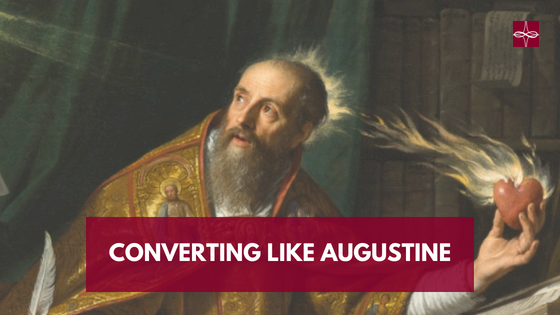

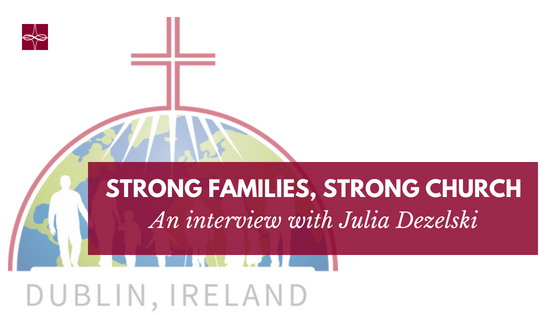
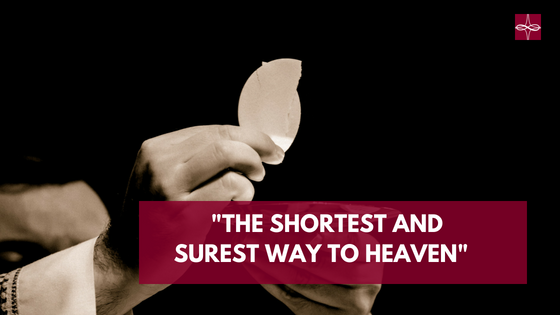

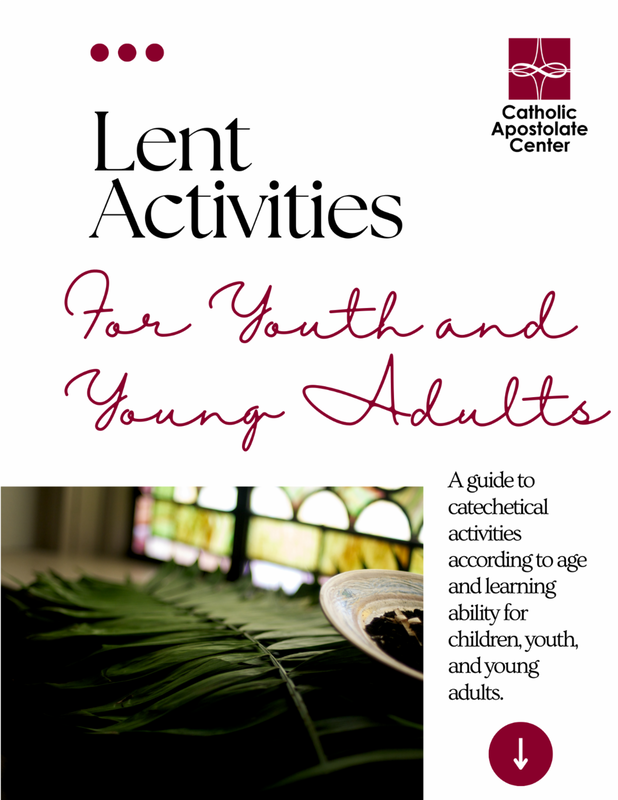
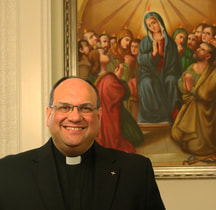
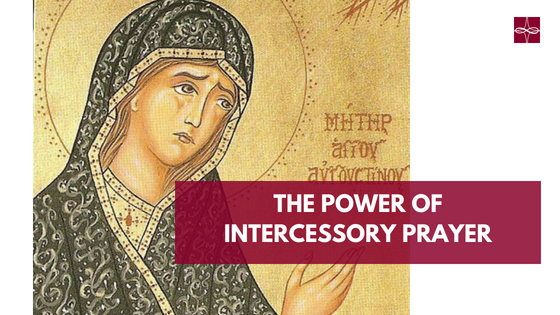

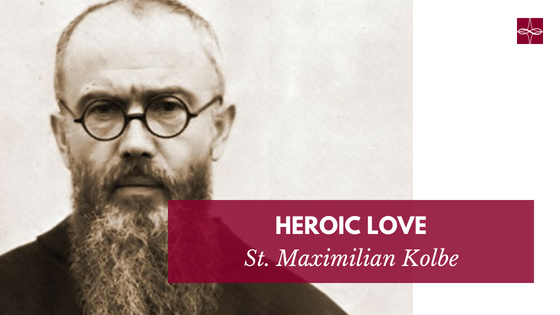



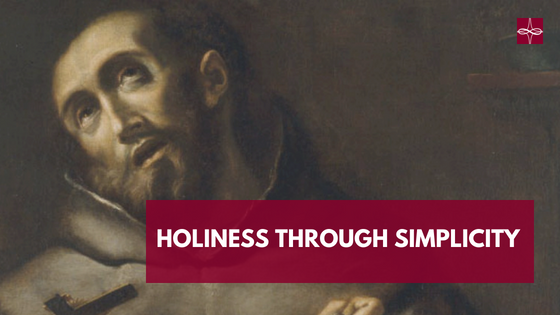


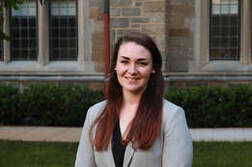
 RSS Feed
RSS Feed